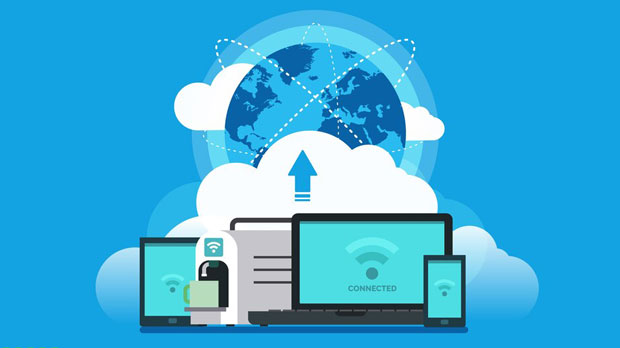Proxy Seller offers a flexible and robust API that enables developers to seamlessly integrate proxy services into their applications. This API allows users to access a wide range of proxy types and manage them efficiently through programmatic commands. In addition to its core functionality, the Proxy Seller API also supports secondary development, which allows for deeper customization and integration with existing systems. The ability to use the API for advanced purposes makes it highly valuable for businesses and developers seeking to optimize their processes and workflows. In this article, we will explore how to use the Proxy Seller API effectively and how secondary development can enhance its functionality, providing high value and practical significance to users. What is Proxy Seller API?The Proxy Seller API provides an interface that allows developers to manage proxy services directly within their applications. Proxies are crucial for maintaining online anonymity, bypassing geographic restrictions, and ensuring smooth browsing experiences. With this API, businesses can request and manage proxies, track usage, and even automate proxy rotation based on their specific needs.The API supports various proxy types, such as residential proxies, data center proxies, and mobile proxies, providing a tailored solution depending on the user’s requirements. These proxies can be used for tasks such as web scraping, secure browsing, ad verification, and geo-targeted marketing.How to Integrate the Proxy Seller API?Integrating the Proxy Seller API into your system is a straightforward process that involves a few key steps. Below, we will break down the process into manageable stages, making it easier to understand and implement.1. API Key Authentication: To begin using the Proxy Seller API, you need an API key. This key is your access token, which authenticates your application and ensures secure access to the API services. Typically, the key is provided by Proxy Seller after registration, and you will need to include it in the request headers to authenticate every API call.2. Making API Calls: Once authentication is complete, you can start making API requests. The Proxy Seller API supports different types of operations, such as creating and managing proxy lists, checking proxy health, and configuring rotation settings. Requests are made through simple HTTP calls, using methods like GET, POST, PUT, and DELETE, depending on the action you wish to perform. Here is a basic example of making a request to retrieve a list of available proxies: ``` GET /api/proxies?api_key= ``` This request will return a list of available proxies that can be used in your application.3. Handling Responses: The API responses are typically in JSON format. You will need to parse the response and extract the relevant information. For example, the response might contain a list of proxy ip addresses, their status, and additional metadata such as geographic location or latency. Example response: ```json { "status": "success", "data": [ { "ip": "192.168.1.1", "location": "USA", "status": "active", "latency": "50ms" }, { "ip": "192.168.1.2", "location": "Canada", "status": "inactive", "latency": "60ms" } ] } ```4. Error Handling: It's essential to handle errors gracefully when working with APIs. The Proxy Seller API returns error codes and messages to help you troubleshoot issues. For instance, if an invalid API key is provided, you might receive a 401 Unauthorized response. Implementing proper error handling will ensure that your application can respond to issues without crashing.Advanced Features: Secondary Development with Proxy Seller APIWhile the basic API integration provides essential functionality, secondary development enables you to expand the capabilities of the Proxy Seller service. Secondary development involves customizing the API's behavior and integrating it with other systems, providing a more tailored experience for your users.Here are some key areas where secondary development can enhance the Proxy Seller API:1. Custom Proxy Rotation Logic: By default, the Proxy Seller API supports proxy rotation, but you can implement custom logic to control how proxies are rotated based on specific conditions. For example, you can create a script that rotates proxies after a set amount of time, or after a certain number of requests. This can help prevent your IP from being blocked or flagged, making your operations more efficient and secure.2. Usage Tracking and Analytics: Integrating usage tracking into your application can provide valuable insights into proxy performance. You can build a dashboard that visualizes proxy usage over time, showing metrics such as response time, uptime, and success rate. By analyzing these metrics, you can identify patterns and optimize the proxy usage for your specific needs.3. Dynamic Proxy Allocation: Secondary development can also allow for dynamic proxy allocation based on real-time conditions. For instance, if a proxy’s performance deteriorates (e.g., increased latency or downtime), your system could automatically switch to a better-performing proxy without manual intervention. This ensures that your application runs smoothly without relying on pre-configured proxies.4. Automation of Proxy Management: For large-scale operations, automating the management of proxies can save significant time and effort. You can develop scripts that automatically renew expired proxies, adjust proxy settings, or deploy new proxy pools when needed. This reduces manual oversight and ensures that you always have optimal proxies available.Benefits of Using Proxy Seller APIUsing the Proxy Seller API offers several significant benefits for businesses and developers. These include:1. Scalability: Whether you're a small startup or a large enterprise, the Proxy Seller API scales to meet your needs. You can easily add more proxies as your business grows, ensuring that your operations can expand seamlessly without requiring additional infrastructure.2. Enhanced Security: Proxies are critical for maintaining privacy and security online. By using the Proxy Seller API, you ensure that your browsing activities are secure and anonymized, preventing unauthorized access to your data.3. Efficiency: The API streamlines the proxy management process, allowing you to focus on other areas of your business. By automating proxy allocation and rotation, you can significantly reduce the amount of manual work involved.4. Customization: With the option for secondary development, the Proxy Seller API can be customized to fit your unique requirements. You can tailor proxy rotation, tracking, and allocation to suit your specific use case, enhancing the overall efficiency of your workflows.Conclusion: Leveraging Proxy Seller API for Maximum ImpactIntegrating the Proxy Seller API into your system and utilizing secondary development opens up a world of possibilities for businesses and developers. Whether you are managing large-scale web scraping operations or ensuring secure browsing for your users, the API provides the flexibility and power needed to optimize your processes. By using advanced features such as custom proxy rotation, dynamic proxy allocation, and automation, you can take full control of your proxy management and enhance your application's performance.Through careful planning and implementation, the Proxy Seller API can significantly improve operational efficiency and security, ultimately contributing to the success of your business.
Jun 11, 2025
![arrow]()



















































